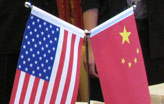Society
Giving weight to words
Updated: 2011-07-18 14:07
(China Daily/Agencies)

Just when all language seemed to be going the way of Twitter and text message shorthand, a backlash to brevity is brewing. More words suddenly have more meaning, and they're making us stop and think.
"The nature of Twitter is you don't need to think about what you're saying," Katie Roiphe, an author and journalist, said in The Times. "Most of us need to think more about what we're saying, not less."
The United States Supreme Court is doing just that. Its use of dictionaries has boomed in the last two decades as justices ponder the meaning of every word. In May alone, the justices cited dictionaries in eight cases to determine what legislators meant when they used words like "prevent," "delay" and "report," The Times said. Justices have also looked up ordinary words like "of," "now," "also," "any" and "if."
"I think that it's probably wrong, in almost all situations, to use a dictionary in the courtroom," Jesse Sheidlower of the Oxford English Dictionary told The Times. "Dictionary definitions are written with a lot of things in mind, but rigorously circumscribing the exact meanings and connotations of terms is not usually one of them."
Nevertheless, a study in The Marquette Law Review found that justices used dictionaries to define 295 words or phrases in 225 opinions in the 10 years starting October 2000. In the 1960s, they used dictionaries to define 23 terms in only 16 opinions, The Times reported.
Even Web addresses ending in .com, .net or .org no longer seem meaningful enough. The Internet Corporation for Assigned Names and Numbers recently approved a vast expansion of the range of Web addresses. Get ready for URLs that are wordier and more descriptive, ending with phrases like iwant.beer or whatsfor. dinner or .whateveryouwant.
God, too, says thou shalt not be brief. The Roman Catholic Church has been preparing for significant changes to the Mass come November in the United States. The new Roman Missal, a book of texts and prayers used in the Mass, is intended to be closer to liturgical Latin. The changes make it more formal and include unfamiliar vocabulary, most noticeable in the Nicene Creed, a recited statement of faith, The Times reported. Currently, Catholics say that Jesus
is "one in being with the Father," but soon they will say that Jesus is "consubstantial with the Father." Awkward and archaic to some, but the Reverend Richard Hilgartner told The Times that it is "a little more poetic and evocative in terms of imagery and metaphor."
That's precisely the holy grail in the design world. To sell paint when home sales are depressed, paint companies are using fanciful names that tell a story or evoke a memory or emotion, wrote The Times. What they do not do is reveal the color. Valspar has Weekend in the Country. Benjamin Moore has Old World Romance and Dream I Can Fly. Pantone has Belgian Block and Tap Shoe. Although these words may not connect consumers with a precise color, they make people stop and think.
"I am perfectly fine if a certain name gives them a perplexed, thoughtful moment," Sue Kim of Valspar told The Times. "If the three-second glance gets us another five seconds as they pause to think, 'Why is that Metro at 5?' I think that's a good thing."
The New York Times

Specials

China-US Governors Forum
The first China-US Governors Forum is held July 15 in the Salt Lake City, the United States.

My China story
Foreign readers are invited to share your China stories.

Rare earths export quota
China kept its export quota at almost the same level as last year.